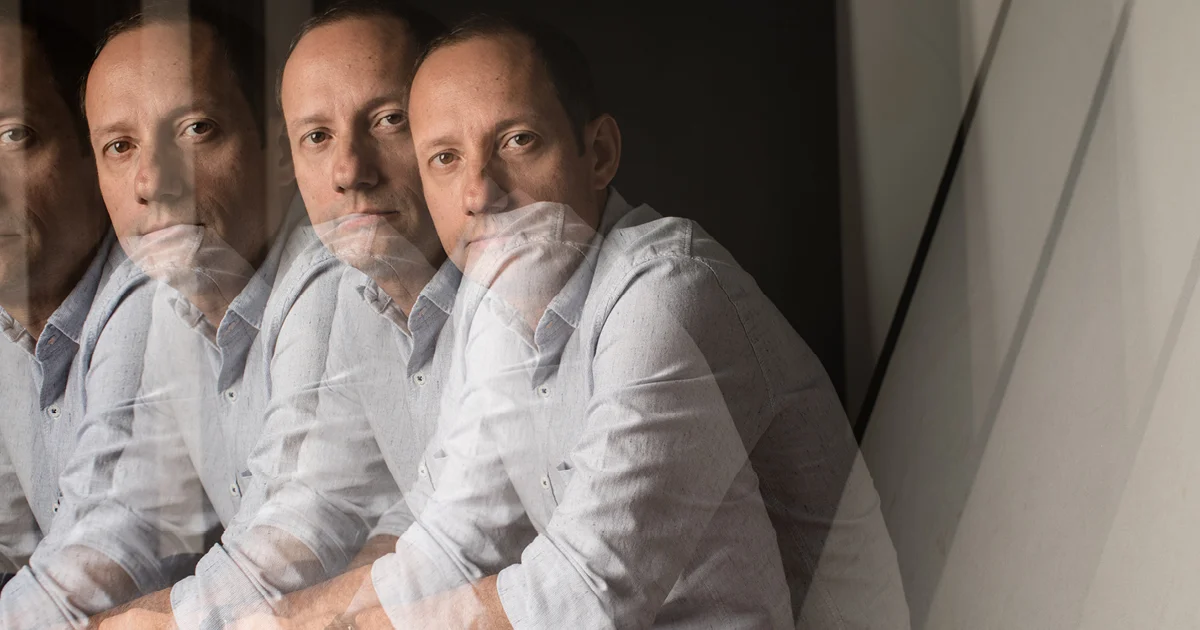Episode 8: Stevens Rehen
“The goal of this is work is to show possibilities…”
Stevens Rehen
In this interview, I sat down with Stevens Rehen, a Brazilian neuroscientist specialising in stem cell research.
Stevens was presenting an overview of his lab’s important work which is throwing up fascinating findings into how psychedelic compounds operate at a cellular level.
We Discuss:
His heavily cited and groundbreaking work into Zika Virus
HIs recent appearance at Breaking Convention
What’s a Brain Organoid? - 3m 02s
Pluripotent Stem Cells - 3m 15s
How his lab is building on the work of the Nobel Prize Winner Shinya Yamanaka - 3m 38s
Improvements in Imaging as it applies to Cell Biology - 4m 0s
The link between microcephaly and Zika Virus - 7m 12s
The religious undergirding of ayahuasca use in Brazil - 10m 45s
the different levels of analysis of psychedelic impact on the human - 13m 59 s
The effects of Harmine, NN-DMT and 5-MeO-DMT in human brain tissue differentiated from induced pluripotent stem cells - 18m 17s
How Harmine increases the pool of neural progenitors through inhibition of DYRK1A - 19m 57s
The high expression of DYRK1A in Alzheimers and Down Syndrome/Trisomy 21 - 20m 10 s
How higher levels of DYRK1A result in increased expression of Amyloid Precursor Protein (APP), and how this then results in increases in Amyloid plaques - 20m 40s
How Harmine might block this pathway, and whilst this doesn’t constitute treatment for neurodegenerative conditions, it is a promising area of research - 21m 34 s
The increased prevalence of amyloid plaques in people with Down Syndrome - 24m
Niall’s series of ‘brain farts’ about how sleep kept being implicated at the conference, and how new research is showing how poor sleep has negative impacts on neurogenesis - 24m 38s
The neurotrophic hypothesis of depression and the role of BDNF - and how psychedelic compounds might expedite this anatomical process when compared with classical anti-depressants - 31m 30s
The results of analyses of human brain organoids exposed to 5-MeO-DMT and how the subsequent alteration of expression of 1000+ proteins suggest that neuroplasticity signalling pathways are influenced by dimethyltryptamines - 35m 30s
How Stevens thinks about the currently moot point of consciousness as it relates to brain organoids - 44m 0s
The tension between the current Brazilian Government and the scientific community, including the recent dismissal of scientist Ricardo Galvao - 46m 50s
Stevens desire to see the general public have a better understanding of basic neuroscience 55m 15s
How to get in touch with Stevens and find out more about his work - 57m 32 s;
Beckley Foundation (important funders of this work)
Stevens Rehen:
Stem Cell Biologist
Stevens Rehen is a stem cell biologist, Professor at the Institute of Biomedical Sciences, Federal University of Rio de Janeiro and Head of Research at D’Or Institute for Research and Education (IDOR), Brazil.
He is an Affiliated Member of the Latin American Academy of Sciences and the Academy of Sciences for the Developing World, and a Former President of the Brazilian Society for Neuroscience and Behaviour. His goal is to push the boundaries of neuroscience by applying new cellular models. We have been successfully studying several aspects of neurogenesis using Organoids. Notably, considerable research efforts have been dedicated to the impacts of Zika virus infection and psychedelics for the human brain tissue.


